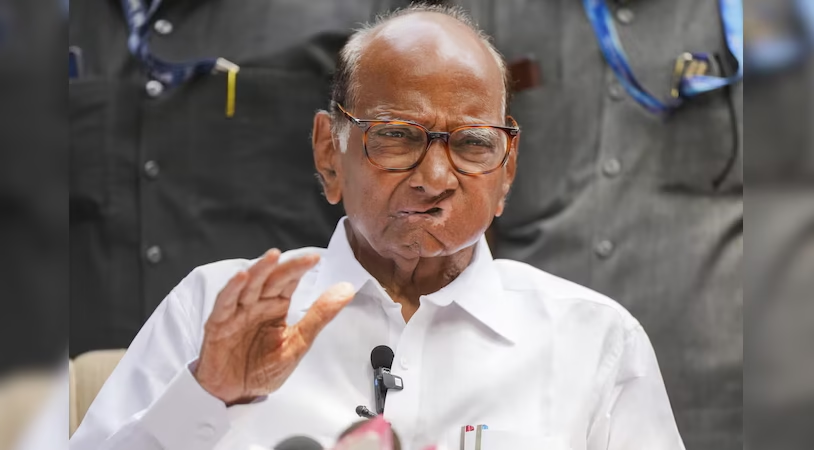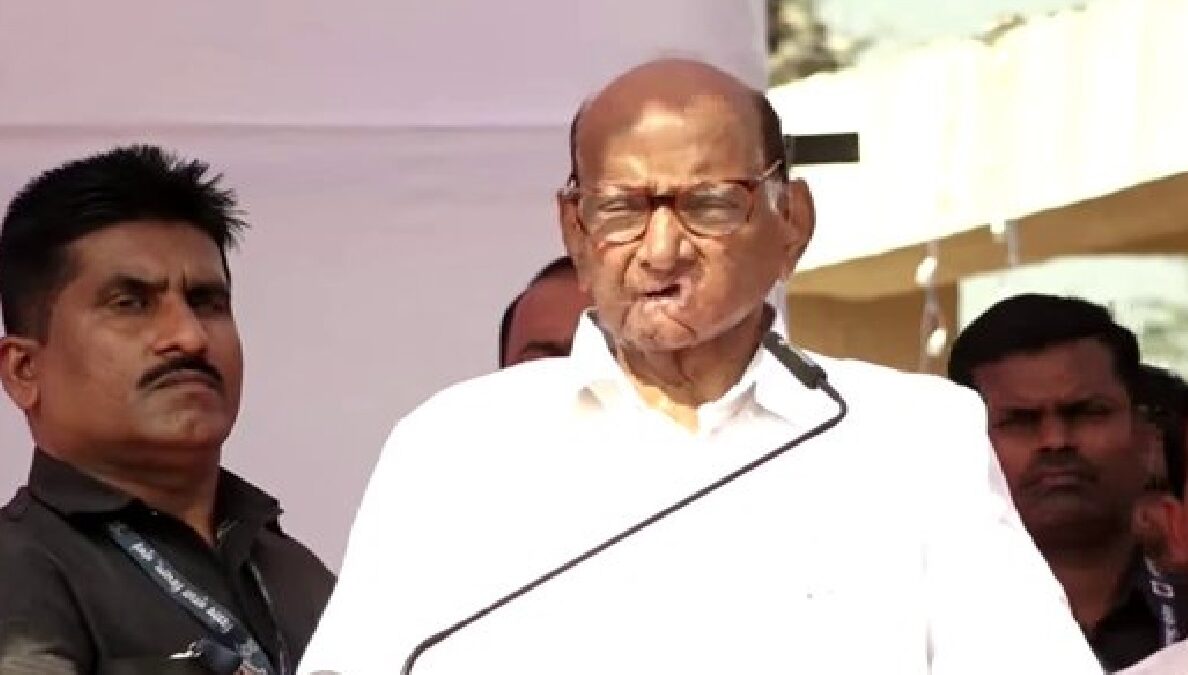Sharad Pawar Backs Markadwadi Villagers Over EVM Doubts, Calls for Ballot Paper Re-election
Sharad Pawar, the seasoned politician and chief of the Nationalist Congress Party (Sharad Pawar faction) (NCP-SP), recently visited the Markadwadi village in Maharashtra’s Solapur district to lend his support to its residents. The villagers had raised concerns over the credibility of electronic voting machines (EVMs) and attempted to conduct a symbolic re-election using traditional ballot papers. Their actions sparked controversy and attracted attention nationwide, with Pawar commending their efforts and addressing the larger issue of electoral transparency in India.
Also Read: Auto Accident Attorney Jacksonville FL: Your Guide to Legal Representation
The Markadwadi Incident: A Quest for Electoral Fairness
The controversy began when over 200 residents of Markadwadi and nearby areas allegedly attempted to organize an unauthorized re-election using ballot papers. Their dissatisfaction stemmed from the outcome of the November 20 state assembly elections, where doubts were cast on the accuracy of the votes counted via EVMs. Although the NCP (SP) candidate Uttam Jankar won the Malshiras constituency by a margin of 13,147 votes, villagers claimed discrepancies in the vote tally at their polling booth, suggesting irregularities in the process.
This act of defiance led the local police to register cases against those involved, accusing them of attempting to conduct an illegal election. The police also restricted gatherings within the village, escalating tensions among residents who sought clarity and justice.
Sharad Pawar Stands with Markadwadi Villagers
Sharad Pawar, accompanied by other NCP (SP) leaders such as Jayant Patil, visited Markadwadi to express solidarity with its residents. Addressing a gathering, Pawar lauded the villagers for raising a critical issue. “I want to thank the villagers for showing the right direction to the country,” he remarked. “You were the ones who thought of conducting polls using ballot papers. This act has raised awareness about the flaws in the current voting system, and it’s time for change.”
Pawar criticized the police action against the villagers, questioning their authority to file complaints and restrict gatherings within the community. “How can the police stop villagers from assembling in their own village? How can they file cases against people for demanding electoral transparency?” he asked. Pawar assured the villagers that he would escalate the matter to Maharashtra Chief Minister Devendra Fadnavis, the Chief Electoral Officer, the Prime Minister, and the Election Commission of India.
EVM Controversy: A National Debate
The concerns raised by the Markadwadi villagers have added fuel to the ongoing national debate about the reliability of EVMs. Critics have long argued that EVMs, while efficient, lack transparency and are susceptible to tampering. Pawar highlighted this issue, stating, “We have collected data about EVMs. People cast their votes, but the results often defy expectations. This needs to be addressed.”
The demand for a return to ballot papers has gained traction among certain political groups and sections of the public, who believe the traditional method is less prone to manipulation. However, proponents of EVMs argue that the system is robust, tamper-proof, and crucial for conducting elections efficiently in a country as populous as India.
Pawar’s Appeal for Non-Politicization
While voicing his support for the villagers, Pawar emphasized that the issue should not be politicized. He appealed to CM Fadnavis to address the villagers’ concerns without viewing them through a partisan lens. “We are not trying to politicize this matter. All we want is to resolve the doubts of the villagers and ensure a transparent electoral process,” Pawar said.
This sentiment reflects a broader concern about maintaining public trust in democratic institutions. The integrity of the electoral process is fundamental to the functioning of a democracy, and any perceived irregularities can erode that trust.
Electoral Upset and Opposition Strategy
The November 20 assembly elections in Maharashtra resulted in a significant victory for the BJP-NCP-Shiv Sena alliance, which secured 230 of the 288 seats. Despite this, the opposition, led by Pawar, has not shied away from pointing out what they perceive as inconsistencies in the voting process. Pawar noted that the disparity between votes polled and seats won was puzzling and suggested a lack of enthusiasm among the electorate about the results.
“There is a lot of resentment among the people. While we have been defeated, we must not dwell on it. Instead, we should reconnect with the people and rebuild trust,” Pawar said at a press conference in Kolhapur.
Government’s Response
Chief Minister Devendra Fadnavis responded to Pawar’s remarks, accusing him of misleading the public. “As a senior leader, it is irresponsible of Pawar to make baseless allegations about the electoral process. Acceptance of defeat and introspection are essential for moving forward,” Fadnavis stated on the social media platform X.
Also Read: Trucking Injuries Attorney Houston: Seeking Justice After an Accident
The government has consistently defended the use of EVMs, asserting their reliability and adherence to global standards. However, incidents like the one in Markadwadi underline the need for addressing public concerns to avoid undermining confidence in the system.
The Road Ahead
The Markadwadi incident has brought thSet featured imagee issue of electoral integrity to the forefront of national discourse. While Sharad Pawar’s support has given the villagers’ cause a prominent platform, it has also reignited debates about the efficacy of EVMs versus traditional ballot papers. The controversy raises important questions about transparency, accountability, and the need for reforms in India’s electoral system.
For democracy to thrive, every citizen must feel confident that their vote counts. Whether this confidence can be restored through systemic changes or reaffirmed through existing mechanisms remains a pressing challenge for India’s political leadership. Markadwadi’s call for electoral transparency may have started as a local protest, but its implications could potentially reshape the country’s electoral landscape.


